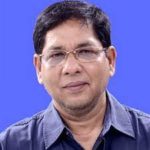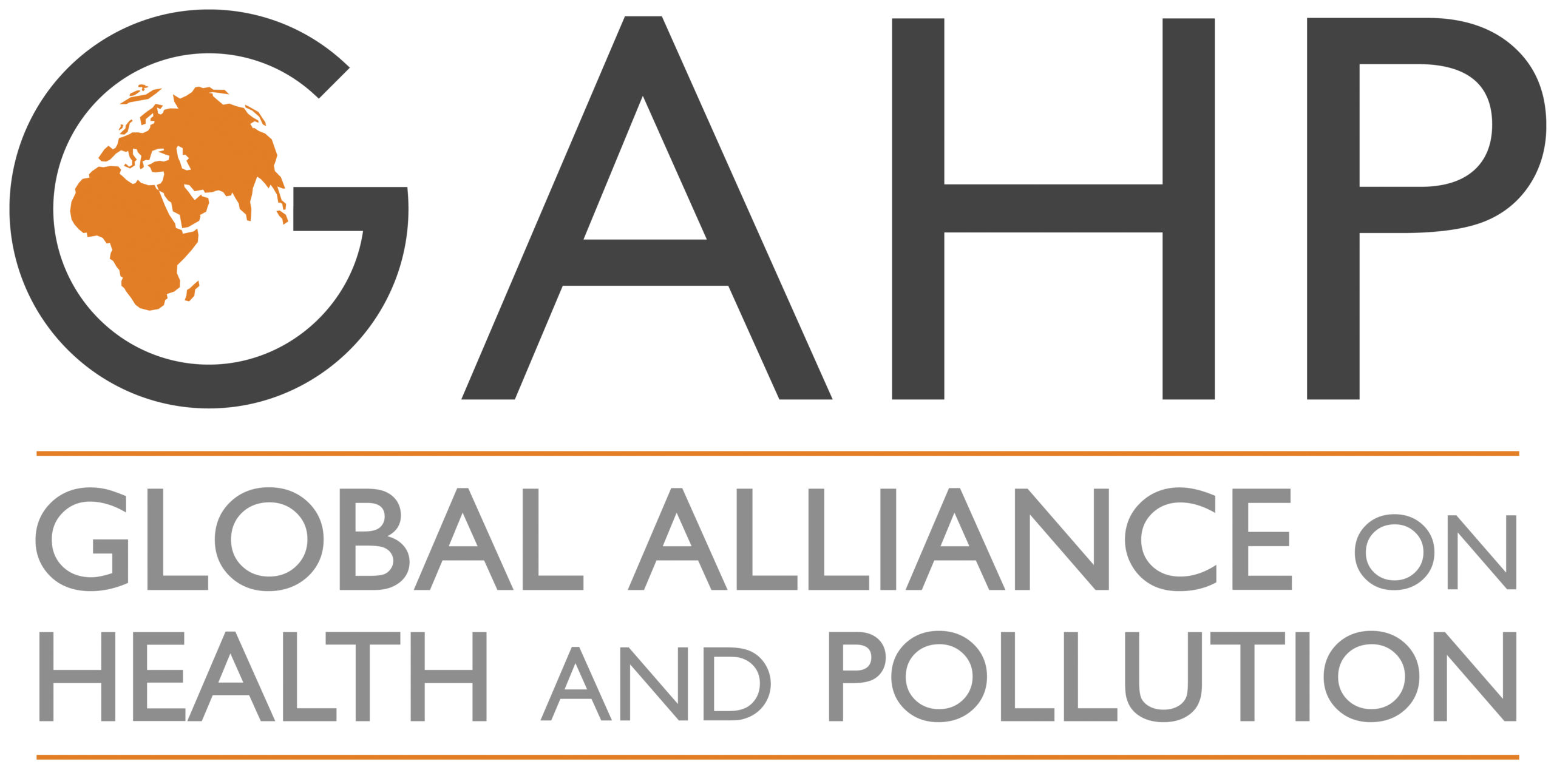

Commission Co-Chair:
Philip J. Landrigan, MD, MSc, FAAP
Director, Global Public Health Program, Schiller Institute for Integrated Science and Society, Boston College; Formerly Arnhold Institute for Global Health, Icahn School of Medicine at Mount Sinai, New York, NY, USA
Read the Q&A with Dr. Landrigan, find out next steps beyond the report, and more.
“The Commission presents abundant evidence showing that pollution is a problem that can be fixed…These interventions provide an extraordinary opportunity to improve public health and also to slow the pace of global climate change. Pollution prevention is a winnable battle.”


Commission Co-Chair:
Richard Fuller, BE
President, Pure Earth (formerly Blacksmith Institute), New York, NY, USA; Global Alliance on Health and Pollution, New York, NY, USA.
“We have to stop poisoning ourselves. The impact of pollution is huge – at least one death in every six. It is just too much. Especially because we know it need not be that bad. There are well tested, low-cost strategies that work to keep pollution in control. We need to prioritize pollution as it affects us all. Pollution has no boundaries.”


Neric Acosta, PhD
Office of the President, Manila, Philippines.
“We can only protect that which we first value; we can only value that which we first understand.”


Olusoji Adeyi, DrPH
Health, Nutrition & Population Global Practice, The World Bank Group, Washington, DC, USA
“It’s time for a shift in thinking and practice in pollution and control, to ensure lasting health gains on a large scale.”


Robert Arnold, PhD
Department of Chemical and Environmental Engineering, University of Arizona, Tucson, AZ, USA.


Niladri Basu, PhD
Canada Research Chair in Environmental Health Sciences and Associate Professor, Faculty of Agricultural and Environmental Sciences, McGill University, Montreal, Canada; Adjunct Professor, University of Michigan School of Public Health, Ann Arbor, Michigan, USA.
Read the Q&A with Dr. Basu, and more.
“We need to communicate our scientific knowledge. This knowledge is vast and deep, it spans across the natural, social, and medical sciences, and it provides the evidence base for us to act.”
Abdoulaye Bibi Baldé, MS
Ministry of Environment and Sustainable Development,
Dakar, Senegal


Roberto Bertollini, MD
Scientific Committee on Health, Environmental and Emerging Risks of the European Commission, Luxembourg City, Luxembourg; Office of the Minister of Health, Ministry of Public Health, Doha, Qatar.


Stephan Bose-O’Reilly, MD
Institute and Outpatient Clinic for Occupational, Social and Environmental Medicine, University Hospital of LMU Munich, Germany; Department of Public Health, Health Services Research and Health Technology, Hall inTirol, Austria.




Patrick Breysse, PhD
Department of Environmental Health Sciences and Engineering, Johns Hopkins Bloomberg School of Public Health, Baltimore, MD, USA.


Thomas Chiles, PhD
Department of Biology, Boston College, Chestnut Hill, MA, USA
Read the Q&A with Dr. Chiles and more.
“Pollution disproportionately affects children, the elderly and the poor. Strikingly, more than 90% of pollution-related deaths occur in low-income and middle-income countries.”
Professor Doctor Her Royal Highness Princess Chulabhorn Mahidol, PhD
Chulabhorn Research Institute, Bangkok, Thailand
Awa Marie Coll-Seck, MD
Ministry of Health and Social Affairs, Dakar, Senegal


Maureen Cropper, PhD
Resources for the Future, Washington, DC, USA; Department of Economics, University of Maryland, College Park, MD, USA.
“Improving environmental health should be a public health priority.”
Julius Fobil, DrPH
Department of Biological, Environmental and Environmental and Occupational Health Sciences, School of Public Health, University of Ghana, Accra, Ghana


Valentin Fuster, MD
Mount Sinai Heart, Icahn School of Medicine at Mount Sinai, New York, NY, USA; Centro Nacional de Investigaciones Cardiovasculares Carlos III (CNIC), Madrid, Spain.
Michael Greenstone, PhD
Department of Economics, University of Chicago, Chicago, IL, USA.
Andy Haines, FMedSci
Department of Social and Environmental Health Research and Department of Population Health, London School of Hygiene and Tropical Medicine, London, UK


David Hunter, MBBS
Nuffield Department of Population Health, University of Oxford, Oxford, UK.


Department of Civil Engineering, Indian Institute of Technology
Delhi, India
Alan J. Krupnick, PhD
Resources for the Future, Washington, DC, USA


Bruce Lanphear, MD
Faculty of Health Sciences, Simon Fraser University,
Burnaby, BC, Canada.
Bindu Lohani, PhD
Centennial Group, Washington, DC, USA; The Resources Center, Lalitpur, Nepal


Keith Martin, MD
Consortium of Universities for Global Health (CUGH), Washington, DC, USA.
Karen Mathiasen, MALD
Office of the US Executive Director, World Bank Group, Washington, DC, USA


Maureen McTeer, LLM
Faculty of Common Law, University of Ottawa,
Ottawa, ON, Canada.
Read 4 questions with lawyer and activist Maureen McTeer,
and more.
Christopher Murray, MD
Institute for Health Metrics and Evaluation, Seattle, WA, USA


J. Ndahimananjara, MD
Ministry of Environment, Ecology and Forests, Antananarivo, Madagascar.


Frederica Perera, DrPH
Columbia Center for Children’s Environmental Health, Department of Environmental Health Sciences, Mailman School of Public Health, Columbia University, New York, NY, USA.


Janez Potocnik, PhD
UN International Resource Panel, Paris, France;
SYSTEMIQ, London, UK
Read 3 questions with Dr. Potocnik, and more.
“…as an economist, I believe that in fact the only sensible way forward is for the economy and the environment to go hand in hand.”


Alexander S. Preker, PhD
Department of Environmental Medicine and Global Health, Icahn School of Medicine at Mount Sinai, New York, NY, USA; Department of Health Policy and Management, Mailman School of Public Health, Columbia University, New York, NY, USA; Health Investment & Financing Corporation, New York, NY, USA.




Johan Rockström, PhD
Stockholm Resilience Centre, Stockholm University,
Stockholm, Sweden.




Leona Samson, PhD
Department of Biological Engineering and Department of Biology, Center for Environmental Health Sciences, Koch Institute for Integrative Cancer Research, Massachusetts Institute of Technology, Cambridge, MA, USA.


Karti Sandilya, LLB
Pure Earth, New York, NY, USA.
Read the Q&A with Karti Sandilya, and more.
“Persuading people to tackle the single biggest, yet unseen, killer in the world – that will also help with climate change – is a no-brainer!”


Peter D. Sly, DSC
Children’s Health and Environment Program, Child Health Research Centre, the University of Queensland, Brisbane, QLD, Australia
”Reducing pollution does improve health. The time for action is now!”
Kirk R. Smith, PhD
Environmental Health Sciences Division, School of Public Health, University of California, Berkeley, CA, USA


Achim Steiner, MA
Administrator, United Nations Development Programme (UNDP); Oxford Martin School, University of Oxford, Oxford, UK.
Read 4 questions with Achim Steiner, and more.
“The most important thing is that people are made aware of the nature of the problem, the impact it will have on them and those around them, and the choices available to reduce pollution.”
Richard Stewart, LLB
Guarini Center on Environmental, Energy, and Land Use Law, New York University, New York, NY, USA


William Suk, PhD
Division of Extramural Research and Training, National Institute of Environmental Health Sciences, National Institutes of Health, Research Triangle Park, NC, USA


Onno Van Schayck, PhD
Care and Public Health Research Institute, Maastricht University, Maastricht, the Netherlands


Gautam N. Yadama, PhD
School of Social Work, Boston College, Chestnut Hill, MA, USA
Kandeh Yumkella, PhD
United Nations Industrial Development Organization, Vienna, Austria


Ma Zhong, PhD
School of Environment and Natural Resources, Renmin University of China, Beijing, China.


